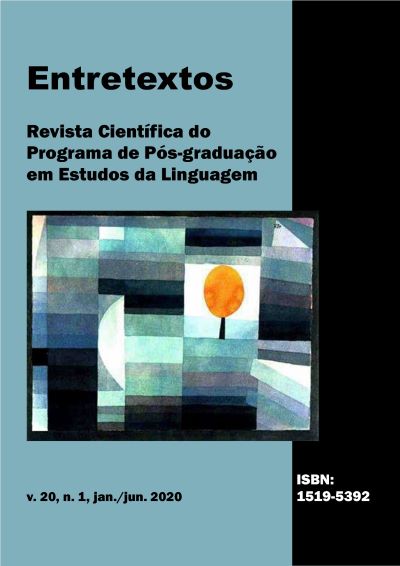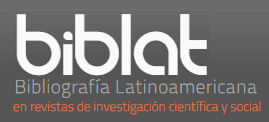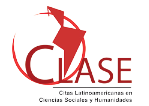The development of undergraduate students’ cyberliterary texts
DOI:
https://doi.org/10.5433/1519-5392.2020v20n1p9Keywords:
Creative Writing, Sociocultural theory, FanfictionAbstract
The Digital Creative Writing (DCW) has not been extensively researched in Brazil. There are few courses on DCW in Brazilian Universities, and even fewer publications available in this area (MYERS, 2006, MORLEY, 2007, BLYTHE and SWEET, 2008, HEALEY, 2009; OBERHOLZER, 2014). The Law on Educational Guidelines and Bases of Brazil (LDB, in Portuguese), Law 9.394/96, values education and national cultures. Thus, multimodality (HODGES & KESS, 1998) becomes part of this valuation. In addition, multimodality, multiliteracy and multidisciplinarity/transdisciplinarity are also reinforced by the 1998 National Curricular Parameters (PCNs, in Portuguese). However, few Brazilian universities provide their undergraduate students with subjects that they can help them develop multimodal texts such as fanfictions. For these reasons, a Fanfictional Creative Writing in English (FCW) course was developed and taught at USP at the end of 2016. This course had 5 participants, all USP undergraduate students. The objectives of the FCW course were mainly to help its participants develop cyberliterary texts. The methodology of this research involved the organization and teaching of the FCW as an extracurricular course at USP. To achieve these objectives, the organization of the FCW course was based on the Vygotskian sociocultural theory (VYGOTSKY, 2004; 2007). The collected data indicated that FCW students may have developed both multimodality concepts as well as cyberliterary texts.
Downloads
References
BLYTHE, Hal; SWEET, Charlie. Why creativity, why now? Stanford, California: Stanford University, 2008. Tomorrow's Professor Postings.
BLYTHE, Hal; SWEET, Charlie. Why creativity, why now? Tomorrow’s Professor, 2008.
BONAMINO, Alicia; SOUSA, Sandra Zákia. Três gerações de avaliação da educação básica no Brasil: interfaces com o currículo da/na escola. Educação e Pesquisa, São Paulo, SP, v. 38, n. 2, p. 373-388, abr. /jun. 2012.
BRASIL. LDB: Lei de diretrizes e bases da educação Lei 9.394, de 20 de dezembro de 1996, que estabelece as diretrizes e bases da educação nacional. Brasília: Câmara dos Deputados: Centro de Documentação e Informação, 2010.
DUFF, Patsy. Case study research in applied linguistics. New York, NY: Lawrence Erlbaum: Taylor & Francis, 2008.
DUFF, Patsy. How to carry out case study research. In: MACKEY, Alison; GASS, Susan M. (ed.). Research methods in second language acquisition: a practical guide. New York: Wiley-Blackwell, 2012. p. 95-116.
DYSON, Anne Haas; GENISHI, Celia. On the case: approaches to language and literacy research. New York: Teachers College Press, 2005. (NCRLL Collection, book 76).
FERRARI, Alceu. Analfabetismo e níveis de letramento no Brasil: o que dizemos censos? Educação & Sociedade, Campinas, SP, v. 23, n. 81, p. 21-47, 2002.
HEALEY, Stephen Peter. The rise of creative writing and the new value of creativity. Minneapolis MN: The University of Minnesota Press, 2009.
HODGES, Robert; KRESS, Gunther. Social semiotics. Cambridge: Polity, 1998.
JENKINS, Henry. Fans, bloggers, and gamers: exploring participatory culture. New York: New York University Press, 1992.
JENKINS, Henry. Textual poachers: television fans and participatory culture. New York: Routledge, 2007.
LANTOLF, James. Sociocultural theory and second language development. In: VAN PATTEN, BILL; WILLIAMS, Jessica. (ed.). Theories in second language acquisition. New York: Routledge, 2015. p. 207-226.
LEV Semenovich Vygotsky. Imagination and creativity in childhood. Journal of Russian and East European Psychology, Armonk, NY, v. 42, n. 1, p. 7-97, 2004. DOI: 10.1080/10610405.2004.11059210.
MORLEY, David. The Cambridge introduction to: creative writing. Cambridge: Cambridge University Press, 2007.
MYERS, David. The elephants teach: creative writing since 1880. New Jersey: Prentice Hall, 2006.
OBERHOLZER, Peter. Student conceptions of creative writing. Johannesburg: University of the Witwatersrand, 2014. Masters research report. PUGH, Sarah. The democratic genre: fan fiction in a literary context. Glasgow: Seren, 2010.
REIS, Suzana Cristina. Ensino de Língua Inglesa por meio de jogos digitais na universidade: uma proposta de construção. In: TOMITCH, Lêda M. B.; HEBERLE, Viviane M. (org.). Perspectivas atuais de aprendizagem e ensino de línguas. Florianópolis, SC: LLE/PPGI/UFSC, 2017.
SANTOS, Lucíola Licinio de C. P. Políticas públicas para o ensino fundamental: Parâmetros Curriculares Nacionais e Sistema Nacional de Avaliação (SAEB). Educação & Sociedade, Campinas, SP, v. 23, n. 80, p. 346-367, set. 2002.
STAKE, Robert. Multiple case study analysis. New York: Guilford, 2006.
THOMAS, Angela A. Fan fiction online: engagement, critical response and affective play through writing. Australian Journal of Language and Literacy, St Leonards, v. 29, n. 3, 226-239, 2006.
TUSHNET, Rebecca. Legal fictions: copyright, fan fiction, and a new common law. Loyola of Los Angeles Entertainment Law Journal, Los Angeles, CA, v. 17, n. 3, p. 651-686, 1997.
VYGOTSKY, Lev Semyonovich. Mind in society: the development of higher psychological process. Cambridge, MA: Harvard University Press, 2004.
VYGOTSKY, Lev Semyonovich. Thought and language. Cambridge, MA: The Massachusetts Institute of Technology, 2007.
WATTPAD. Available on: https://www.wattpad.com/. Accessed on: 14 abr. 2019.
WERTSCH, James. Mind as action. New York: Oxford University Press, 2008.
WORLD ECONOMIC FORUM - WEF. Industrial internet of things: unleashing the potential of connected products and services. Cologny, SW: WEF, 2015
Downloads
Published
How to Cite
Issue
Section
License
Entretextos adota a Licença Creative Commons Attribution 4.0 International, portanto, os direitos autorais relativos aos artigos publicados são do/s autor/es.
Sob essa licença é possível: Compartilhar - copiar e redistribuir o material em qualquer suporte ou formato. Adaptar - remixar, transformar, e criar a partir do material, atribuindo o devido crédito e prover um link para a licença e indicar se mudanças foram feitas.























